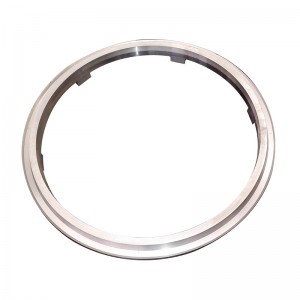- Afrikaans
- Albanian
- Amharic
- Arabic
- Armenian
- Azerbaijani
- Basque
- Belarusian
- Bengali
- Bosnian
- Bulgarian
- Catalan
- Cebuano
- China
- China (Taiwan)
- Corsican
- Croatian
- Czech
- Danish
- Dutch
- English
- Esperanto
- Estonian
- Finnish
- French
- Frisian
- Galician
- Georgian
- German
- Greek
- Gujarati
- Haitian Creole
- hausa
- hawaiian
- Hebrew
- Hindi
- Miao
- Hungarian
- Icelandic
- igbo
- Indonesian
- irish
- Italian
- Japanese
- Javanese
- Kannada
- kazakh
- Khmer
- Rwandese
- Korean
- Kurdish
- Kyrgyz
- Lao
- Latin
- Latvian
- Lithuanian
- Luxembourgish
- Macedonian
- Malgashi
- Malay
- Malayalam
- Maltese
- Maori
- Marathi
- Mongolian
- Myanmar
- Nepali
- Norwegian
- Norwegian
- Occitan
- Pashto
- Persian
- Polish
- Portuguese
- Punjabi
- Romanian
- Russian
- Samoan
- Scottish Gaelic
- Serbian
- Sesotho
- Shona
- Sindhi
- Sinhala
- Slovak
- Slovenian
- Somali
- Spanish
- Sundanese
- Swahili
- Swedish
- Tagalog
- Tajik
- Tamil
- Tatar
- Telugu
- Thai
- Turkish
- Turkmen
- Ukrainian
- Urdu
- Uighur
- Uzbek
- Vietnamese
- Welsh
- Bantu
- Yiddish
- Yoruba
- Zulu
Ліст . 04, 2024 17:25 Back to list
Advantages of Aluminum Permanent Mold Casting in Manufacturing Applications
Aluminum Permanent Mold Castings An Overview
Aluminum permanent mold castings are an essential part of many industries, serving as a vital component in the production of lightweight and durable metal parts. Permanent mold casting, also known as gravity die casting, is a manufacturing process that involves pouring molten aluminum into a reusable mold cavity. This method offers several advantages over traditional sand casting, including improved dimensional accuracy, enhanced surface finish, and reduced post-casting machining requirements.
The Process of Permanent Mold Casting
The permanent mold casting process begins with the preparation of the mold, typically made of steel or iron, which is designed to withstand high temperatures. The mold is constructed in two halves, allowing for the easy removal of the completed cast after cooling. Before pouring the molten aluminum, the mold is preheated, which helps to minimize thermal shock and ensures a uniform flow of aluminum.
Once the mold is ready, molten aluminum, often alloyed with elements like silicon or copper to enhance its properties, is poured into the cavity. Gravity facilitates the flow of aluminum, filling the mold completely. After a predetermined cooling period, the aluminum solidifies, and the mold is opened to reveal the newly cast component.
Advantages of Aluminum Permanent Mold Castings
1. Dimensional Accuracy Permanent mold casting offers excellent dimensional accuracy due to the rigidity of the mold and the controlled pouring process. This characteristic is particularly significant for components that require tight tolerances, reducing the need for extensive machining.
2. Surface Finish The use of a metal mold results in a smoother surface finish compared to sand casting. This advantage helps in producing aesthetically pleasing parts that may not require extensive finishing processes, saving time and resources.
3. High Production Rates Permanent molds can be reused many times, making this process ideal for high-volume production runs. The longevity of the molds and the speed of the process can lead to significant cost savings, especially in mass production scenarios.
4. Material Properties Aluminum is known for its lightweight and high strength-to-weight ratio, making it suitable for applications in the automotive, aerospace, and electronics industries. The casting process enhances the mechanical properties of aluminum, resulting in parts that are not only strong but also resistant to corrosion.
aluminum permanent mold castings

5. Environmental Benefits The permanence of the molds and the capability to recycle aluminum reduces waste compared to other casting methods. The ability to reuse molds decreases the amount of material needed for production, aligning with environmentally friendly manufacturing practices.
Applications of Aluminum Permanent Mold Castings
Aluminum permanent mold castings are used in a wide range of applications across various industries. In the automotive sector, they are often employed to manufacture engine components, housing, and transmission parts that require a combination of strength and lightweight characteristics. The aerospace industry also benefits from aluminum castings in the production of structural components and parts that demand high precision and performance.
Furthermore, consumer goods manufacturing utilizes aluminum permanent mold castings to create everything from kitchen utensils to electronic housings. The versatility and adaptability of the process allow for the design of intricate shapes and forms that meet specific functional requirements.
Challenges and Considerations
Despite the many advantages, there are challenges associated with aluminum permanent mold casting. The initial cost of manufacturing the mold can be high, making it less favorable for low-volume production. Additionally, the process is not suitable for every shape or size; complex geometries may require additional techniques such as machining or using sand casting methods.
It's essential for manufacturers to conduct thorough design and feasibility studies before choosing aluminum permanent mold casting as their production method. Understanding the specific requirements of the intended application will determine if this casting method is the most advantageous choice.
Conclusion
In summary, aluminum permanent mold castings present an efficient and effective solution for producing high-quality metal components in various industries. The combination of dimensional accuracy, excellent surface finishes, and the lightweight nature of aluminum makes it an attractive option for manufacturers seeking to balance performance with cost. As industries continue to evolve and demand higher standards of quality and efficiency, the role of aluminum permanent mold castings will undoubtedly remain significant in the manufacturing landscape.
-
Durable Cast Iron Water Main Pipe | AI-Optimized Design
NewsAug.05,2025
-
8mm Thin-Walled Cast Steel Manhole Cover Pallet Bottom Ring | Durable
NewsAug.04,2025
-
Premium Cast Iron Water Main Pipe: Durable, Corrosion-Resistant
NewsAug.03,2025
-
Durable Cast Iron Water Mains | AI-Optimized Systems
NewsAug.02,2025
-
High-Efficiency Propane Boiler for Baseboard Heat | Save Energy
NewsAug.01,2025
-
Premium Source Suppliers for Various Gray Iron Castings
NewsJul.31,2025


